Discover six books to read in celebration of Native American Heritage Month
In honor of Native American Heritage Month, we celebrate Native alumni and faculty members who have authored books in a number of genres. From history and culture to storytelling, there’s something for everyone on this list.
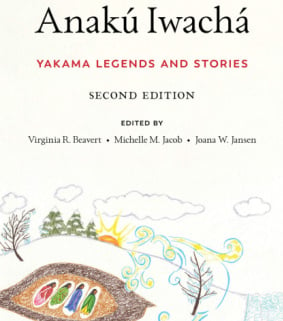
Anakú Iwachá: Yakama Legends and Stories
Coedited by Tuxámshish Virginia Beavert, PhD ’12 (linguistics), Joana Jansen, MA ’04 (linguistics), PhD ’10 (linguistics), Northwest Indian Language Institute, and Michelle Jacob, UO professor of Indigenous studies and director of the Sapsik’ʷałá (Teacher) Education Program.
Anakú Iwachá: Yakama Legends and Stories features stories that Yakama Tribal Elders recorded in Ichishkíin that were collected and translated into English by Tuxámshish Virginia Beavert. It also educates readers on the history of the project and on Ichishkíin-language education.
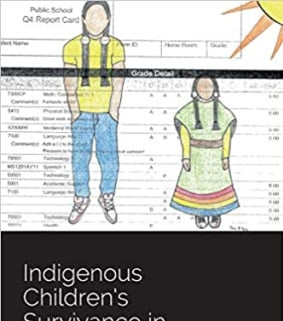
Indigenous Children’s Survivance in Public Schools
By Leilani Sabzalian BA ’02 (education studies), MEd ’03 (educational leadership), PhD ’15 (critical, sociocultural studies and education). Leilani is Alutiiq and assistant professor of Indigenous studies in education and codirector of the Sapsik'wałá (Teacher) Education Program.
Sabzalian’s book breaks down the cultural, social, and political terrains of Indigenous education through the lens of Indigenous students and faculty within public schools. Examining the impact of colonization on various aspects of public education, Indigenous Children’s Survivance in Public Schools is written with the goal of better developing educators’ anticolonial literacy.
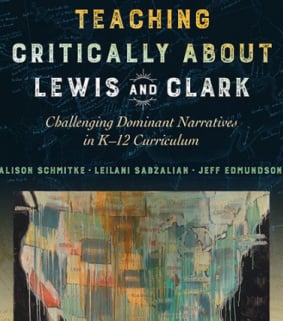
Teaching Critically about Lewis and Clark: Challenging Dominant Narratives in K-12 Curriculum
By Alison Schmitke, undergraduate degree program director for the educational foundations major; Leilani Sabzalian, BA ’02 (education studies), MEd ’03 (educational leadership), PhD ’15 (critical, socio-cultural studies and education), UO assistant professor of Indigenous studies in education and codirector of the Sapsik'wałá (Teacher) education program; and Jeff Edmundson, MA ’80 (psychology).
Viewing Lewis and Clark’s Corps of Discovery through an anticolonial lens and the Doctrine of Discovery, Schmitke, Sabzalian, and Edmundson take a close look at how educators can challenge dominant narratives and support more responsible social studies instruction.
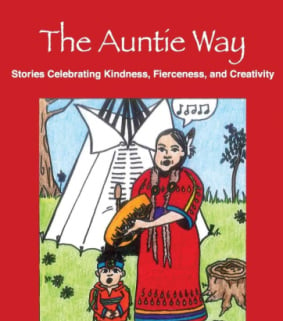
The Auntie Way: Stories Celebrating Kindness, Fierceness, and Creativity
By Michelle Jacob, a member of the Yakama Nation and UO professor of Indigenous studies.
The Auntie Way tells twelve stories of the ways in which “Aunties,” whether blood related or chosen, help us to step into our better selves, through their kind and fierce “Auntie-ing.” Each story is accompanied by journaling and discussion questions to help readers connect with deeper lessons and inner wisdom.
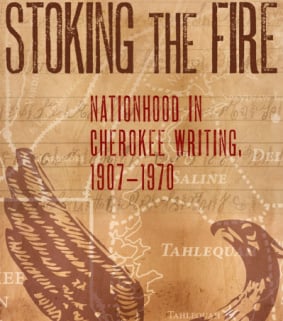
Stoking the Fire: Nationhood in Cherokee Writing, 1907-1970
By Kirby Brown, a citizen of Cherokee Nation of Oklahoma and UO associate professor of Native American literatures.
Stoking the Fire examines the work of many Cherokee writers from 1907-1970, revealing the complicated ways their writings reimagined, enacted, and bore witness to Cherokee nationhood in the absence of a functioning Cherokee state.
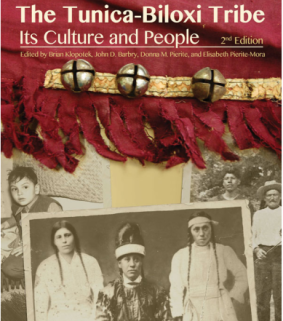
The Tunica-Biloxi Tribe: Its Culture and People (Second Edition)
Edited by Brian Klopotek (Choctaw descent), John Barbry (Tunica-Biloxi Tribe), Donna M. Pierite (Tunica descent), and Elisabeth Pierite-Mora (Tunica-Biloxi Tribe). Klopotek is an associate professor of Indigenous, race, and ethnic studies at the UO.
Over 30 years after the first edition of the book, the Tunica-Biloxi Tribe of Louisiana and the Language and Culture Revitalization Program have released a new edition. The Tunica-Biloxi Tribe illuminates the tribe’s past and place in Louisiana history.

